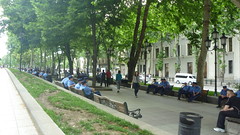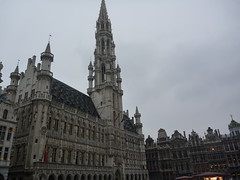“It is hard to speak without any emotion about a conflict when you live it,” a great new friend and journalist explains to me as we drive across busy Tbilisi on a Friday night. “I can talk about Kosovo, Iraq, without getting emotional, but this… its so complicated and has such an impact on my life,” he struggles to find the words to explain why the long standing conflict between Russia and Georgia, especially the 2008 war, is so hard to address and explain without getting angry or frustrated.

It is this complexity that I have brought up, or seems to come up, quite often in the comings and goings of a visiting foreign citizen journalist. I’ve gotten to hear about the experiences of people here, what they were doing to keep safe and protect their loved ones while their home city was being bombed from above. I listen to the stories and then I walk down to a local café with fancy named drinks and free wifi, I struggle to imagine bombs raining down anywhere near this place. Why would anyone agree to do that? Who pushes that button, and goes on with life?
2008. Not 1998. Not 1948. In 2008 the Russian army moved using their justification and the Georgian army responded using their justification. Even if I’ve got the sequence of events wrong, at the most basic level, two armies which are made of human beings, took aim at each other in an effort to damage or destroy the other.
I’m simplifying war, which my wise friend reminds me in words, is more possible when you haven’t lived that war. But I do it because I have studied and I continue to study the world. In my observations and studying I have witnessed that most irreconcilable differences are reconcilable. Most conflicts are created, orchestrated, and inflated by political and military leaders. And beyond who creates the conflict, it is we the citizens of the world who carry out the gruesome inhumane task of trying to destroy one another. Without our cooperation, our hands at the controls, our fingers on the triggers, most wars could not be fought. Even a drone has a pilot somewhere, who is consciously carrying out a task relating to war.
So now for the impossible. Where I lose you because what I invision is considered impossible… even though in terms of our abilities as humans and our collective power… it is physically and mentally possible to do. That is to refuse. Refuse to line up for war. Refuse to pull the trigger. And perhaps most importantly, refuse to believe what you’re told about the mission; that those people over that line deserve to die and that you’re right for carrying out orders to harm them. -OF course- this means both sides. This only works with a cross border, cross cultural, out pouring of some of the greatest bravery the world has ever seen. That two militaries would refuse to take aim at each other. What a beautifully boring war it would be.

 Over the past 10 years, besides regularly visiting friends and family, I have taken
Over the past 10 years, besides regularly visiting friends and family, I have taken 
 40 years of war in Mindanao rarely makes it to the front pages of the international press. Yet according to Edwin Espejo, more attention in the international would do alot towards ending this long and destructive conflict. As my guest in this edition of citizenreporter, Edwin explains a bit about the orgin of the conflict, the goals of the groups involved, and how things have evolved even prior to 9/11 and the connection between Mindanao and other conflicts in other parts of Asia.
40 years of war in Mindanao rarely makes it to the front pages of the international press. Yet according to Edwin Espejo, more attention in the international would do alot towards ending this long and destructive conflict. As my guest in this edition of citizenreporter, Edwin explains a bit about the orgin of the conflict, the goals of the groups involved, and how things have evolved even prior to 9/11 and the connection between Mindanao and other conflicts in other parts of Asia.